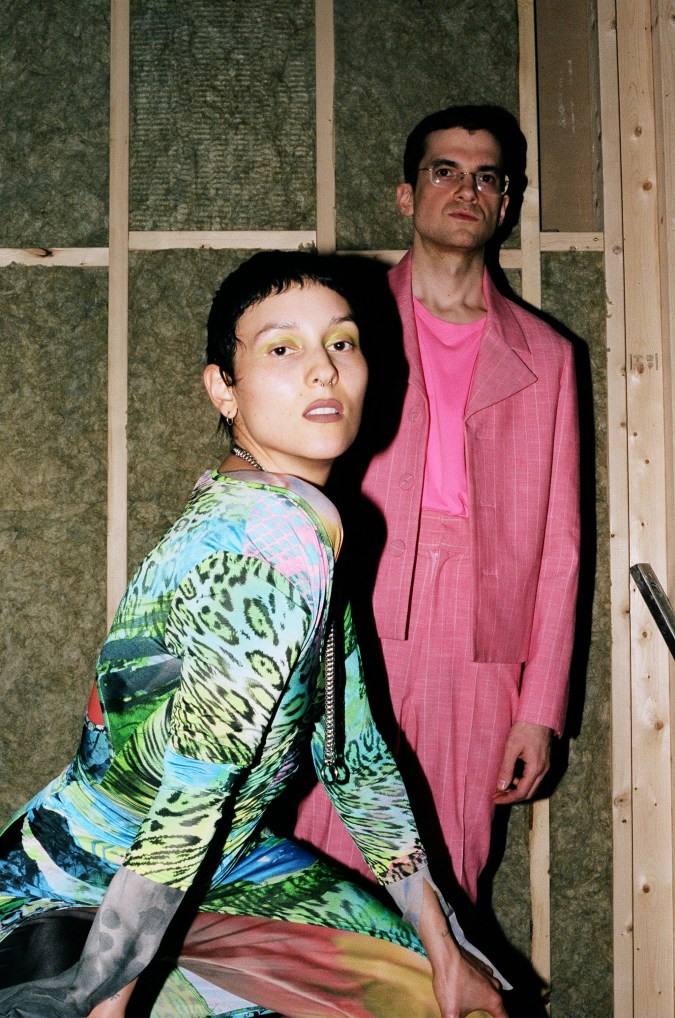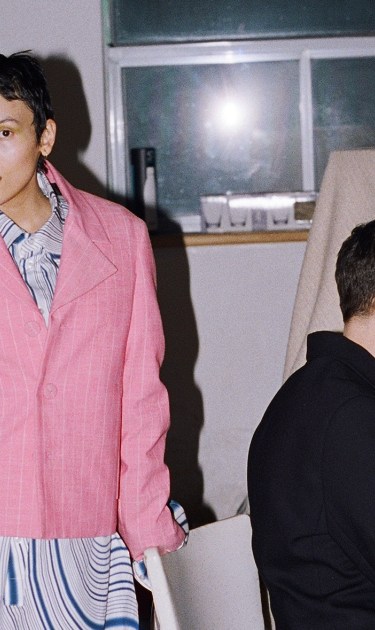Movimiento Para Cambio, the debut album by Montreal electronic music outfit Pelada, starts with a bang. “Yo veo el ojo del diablo/Los hombres malo en la calle/Yo sigo así, no me importa/Porque nací berraquita,” Chris Vargas sings over a New York house track produced by Tobias Rochman that builds up and up. The song is called “A Mí Me Juzgan Por Ser Mujer,” and it’s a potent statement to make the heteropatriarchy shake in its boots. It’s punk, it’s in-your-face, it’s club-ready, and it encapsulates what Pelada is all about.
Vargas and Rochman joined forces in 2014, after making waves in the Montreal scene with electronic industrial band Pelvic Floor and experimental punk trio Grand Trine, respectively, but with Pelada they have made a full splash. Borrowing aspects from their musical background, they are bringing politics to the dancefloor, marrying Vargas’ ferocious vocals and lyrics with Rochman’s banging beats.
Vargas spent part of her childhood in Cali, Colombia, her parents’ hometown, and with Pelada, she wanted to write and sing in Spanish as a way to educate herself in the language. “I could understand and speak it, but then writing about personal experiences in Spanish was a new area for me,” they say over email. “It was a conscious choice to do the project in Spanish and I wanted to honor that part of my upbringing and confused identity. Tobias was also very supportive of it.”

Released by Berlin label PAN, Movimiento Para Cambio, as well as their 2016 EP No Hay / Ten Cuidado (later rereleased as Ep1,) is packed with growling Spanish vocals that are delivered with such strength they destroy language barriers. On the Chicago house-laden “Habla Tu Verdad,” they stand against gender oppression and behind sexual abuse victims; rave meets gabber on “Asegura,” where they tackle issues of government and corporate surveillance; they demand action to protect the environment on the ethereal “Aqui;” and they offer glimpses of perreo on both “Caderona” and “Perra” while uplifting women and non-binary people to live their best lives, rejecting the menacing male gaze.
Pelada understand the power of music as a platform to amplify political messages, start much-needed conversations, and, in Vargas’s words, “work together towards undoing this ridiculous culture.” “I believe in fighting and speaking out against structures and institutions that keep individuals down and silenced,” they explain. “I would hope that our music makes people happy but that, when they understand what we are talking about and are trying to achieve, it inspires them to reframe certain societal structures that exclude everyone else who does not fall under the heteronormative structure, for instance.”
Among the topics they address on their lyrics, sexism and empowerment take a clear central spot, and it’s not a whim. “There is so much anger that I carry from the daily experiences growing up as a ‘woman’ and the expected gender roles atop the obvious and inexcusable inequality between the genders,” shares Vargas. “It’s frustrating to still be navigating through this world and be faced with ingrained sexism or misogyny.”
But this doesn’t mean that, through their denouncement, Pelada’s music turns into The Man Show. On the contrary, women and non-binary people are encouraged and supported throughout Movimiento Para Cambio, and even if the delivery is raw, it still feels like a beautiful gesture. “Although I do not identify as being a woman, I’m inspired by women, femmes and trans women because they teach me how to embrace at times my femmeness as a way of empowering myself,” they say. “I want to reflect on my experience and the experiences of those from my community who I support and support me.”
Movimiento Para Cambio is out now on PAN.




